What did we learn from our 2022 research with our 3-Year-Old Kindy children?
Each year educators at SOEL engage in research with their children to dig deep into an idea or concept. This idea or concept is encompassed in a BIG idea. This BIG idea frames our Long Term Investigation.
For 2022 our 3 Year Old Kindy research question was:
Each family’s uniqueness and stories foster the child’s connection to themselves, each other and the wider world.
“My family is my heart.”
– Indiana W 3y 6m
The concepts within this BIG idea came from our learning with the children in 2021 where we celebrated the 3-year-old children’s connection to their families. This inspired us to explore this further through the lens of Antibias Goals 1 and 2, the Early Years Learning Framework (ELYF) Principles and Outcomes:
“A family can be made up of anyone a person considers to be their family. A family shares emotional bonds, common values, goals and responsibilities. Family members contribute significantly to the wellbeing of each other.”
– Relationships Australia
Goal 1
Each child and educator will demonstrate self-awareness, confidence, family pride, and positive social identities for themselves and others.
Goal 2
Each child and educator will express comfort and joy regarding human diversity, gaining accurate language for human differences. This helps reflect how individuals express themselves and deep, caring human and non-human connections.
EYLF Principles: Respect for Diversity and Partnerships with families and communities.
EYLF Outcome 1.3 | 1.4 | 2.1 | 2.2
During this research, the educators engaged in experiences that explored the concept of family and the many ways of being together as a family. Each 3-year-old programme identified a focus based on the children’s interests, their conversations, and their self-directed play. From here educators planned intentions for the children’s learning. These included:
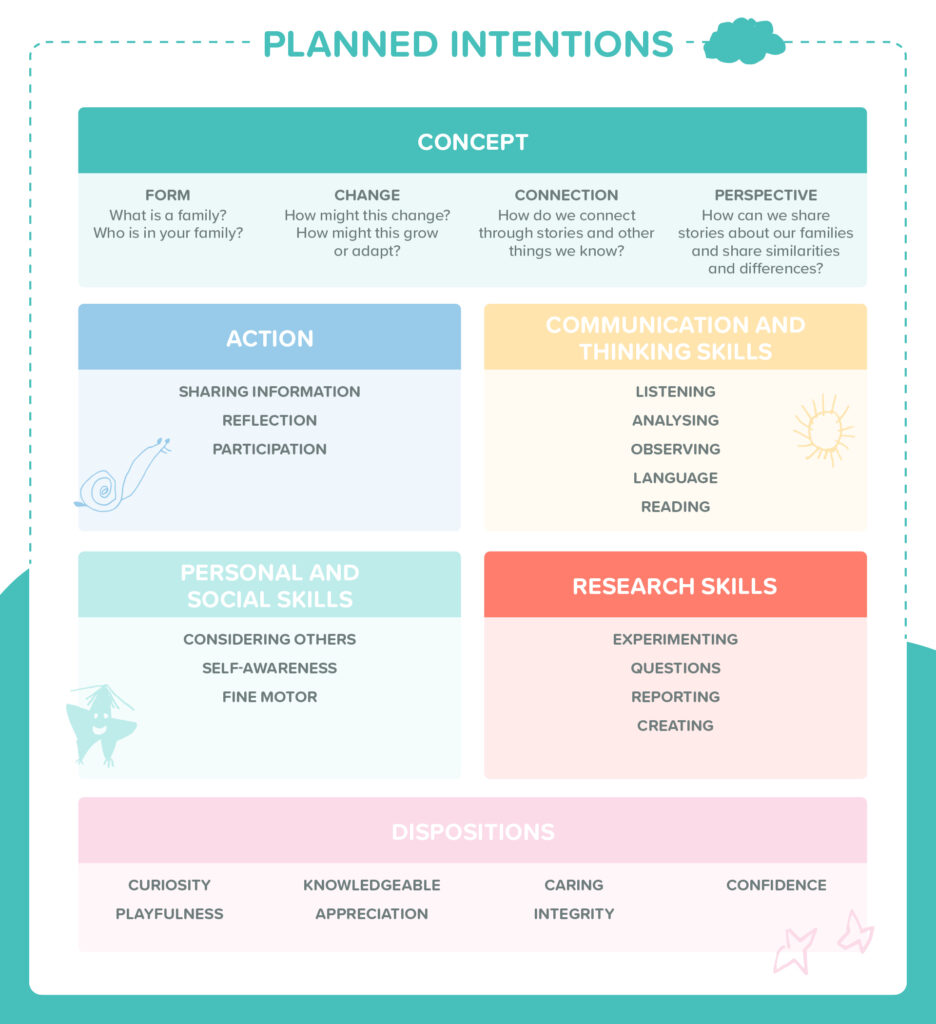

Educators planned intentions pedagogy which included:
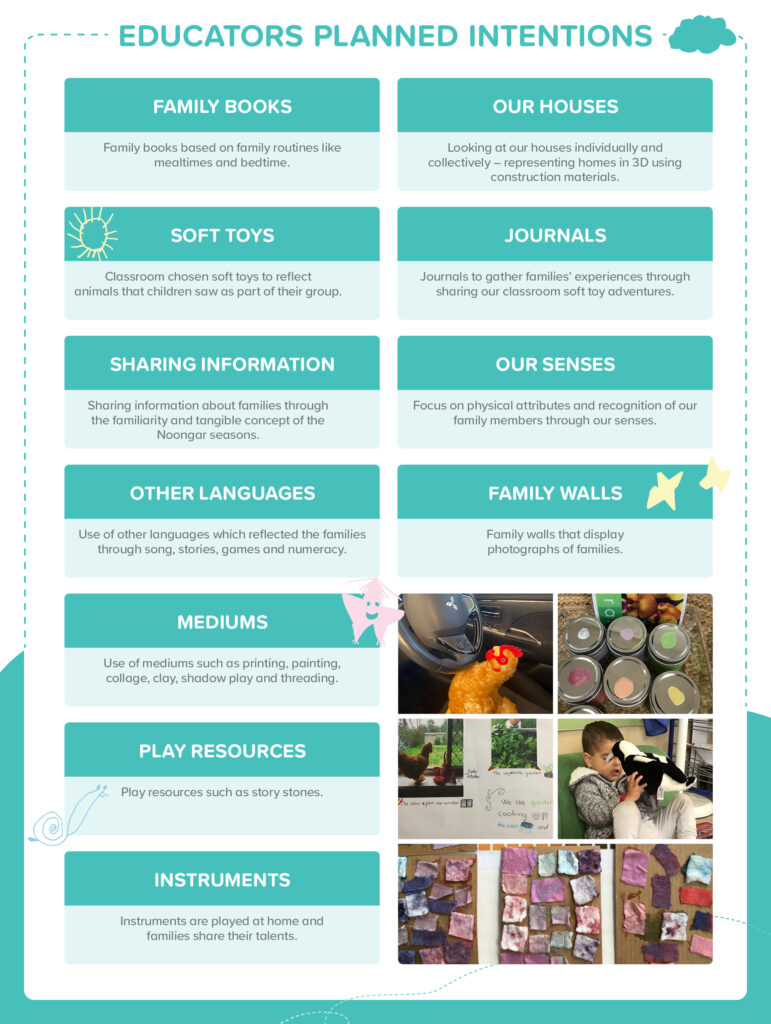

The educators from SOEL 3-Year-Old Kindy programmes met with the Pedagogy and Training Team members every four months (zoom and face-to-face) to share the children’s engagement and responses to the experiences and provocations around this BIG Idea. At our final meeting, we came together to celebrate our findings, share our challenges and identify patterns and recurrent ideas across the six centres.
The findings of this research were:
Finding 1
We learned that family and home are indistinguishable from our children; everything has a home. Every home has a family; each family member makes a different contribution.
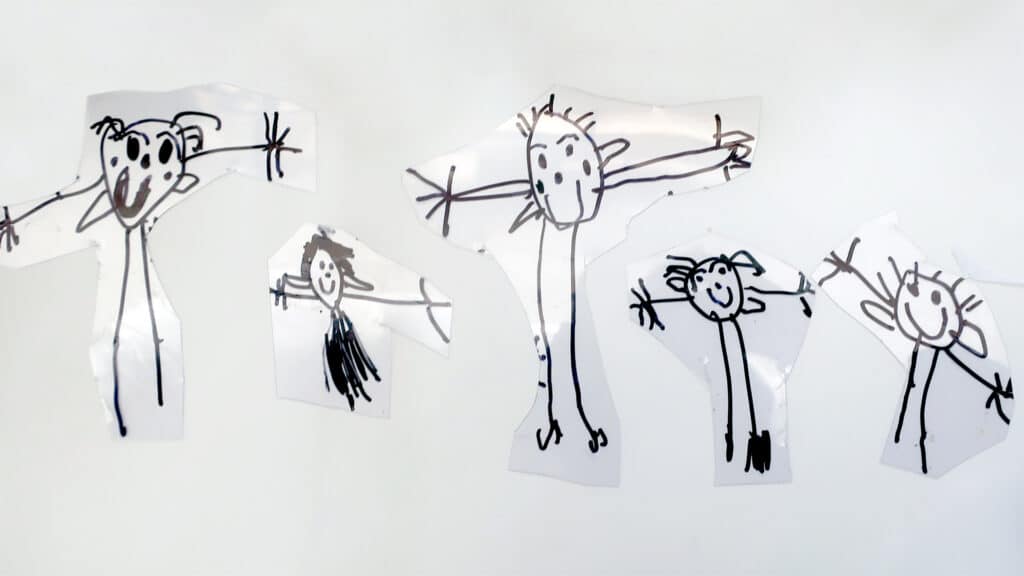

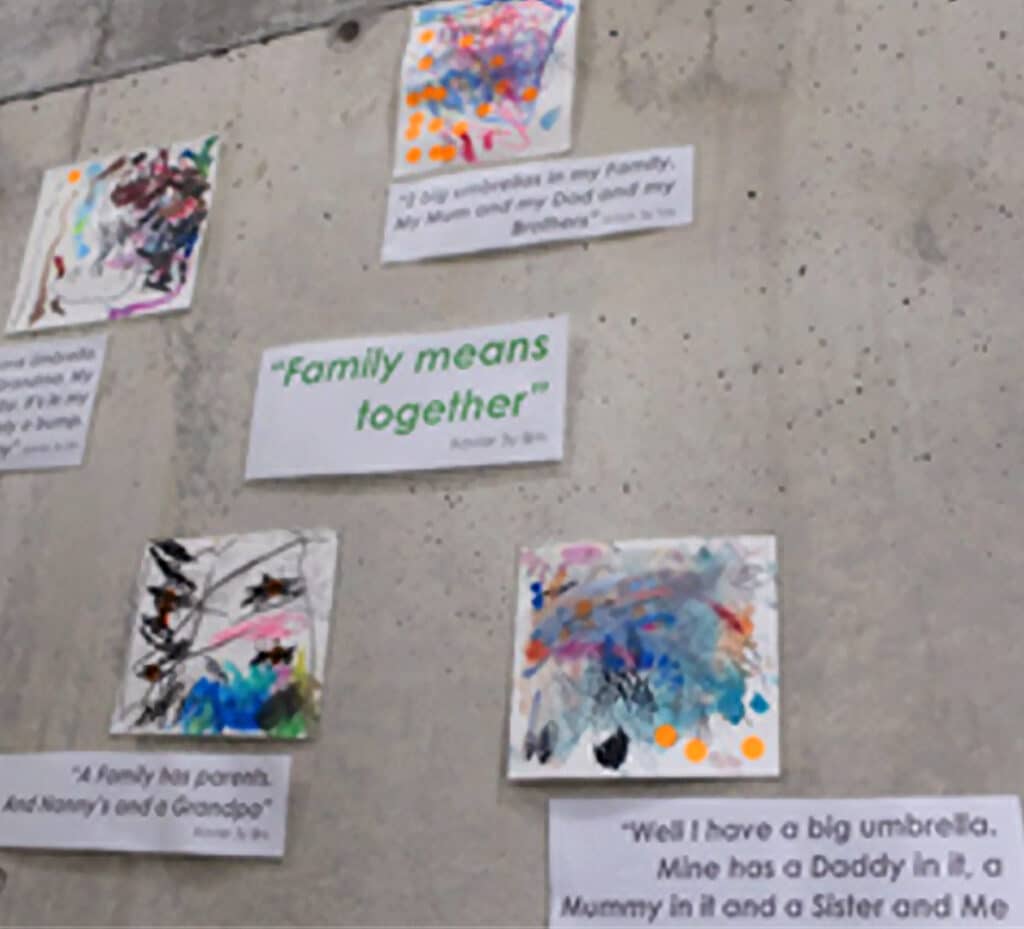

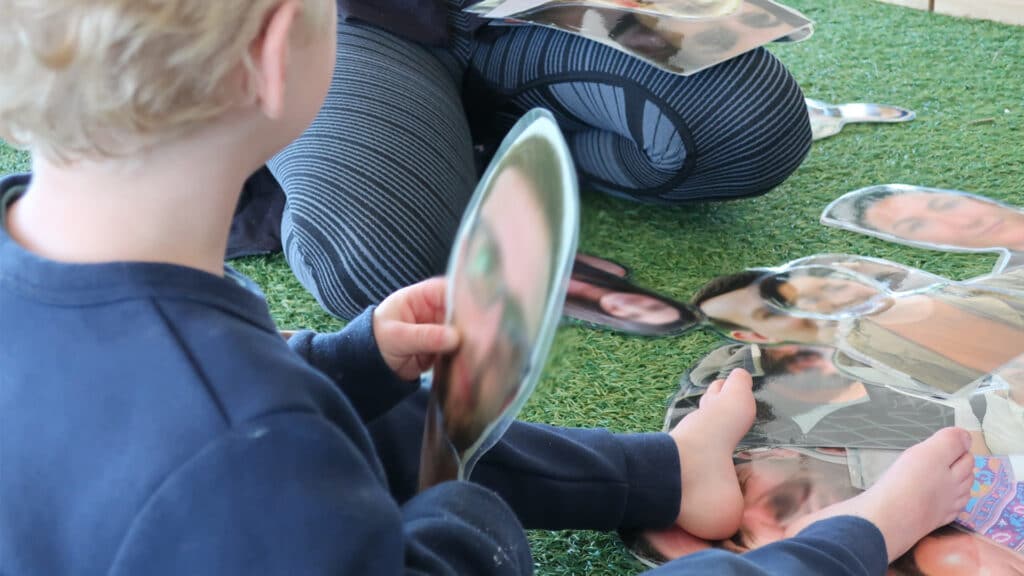

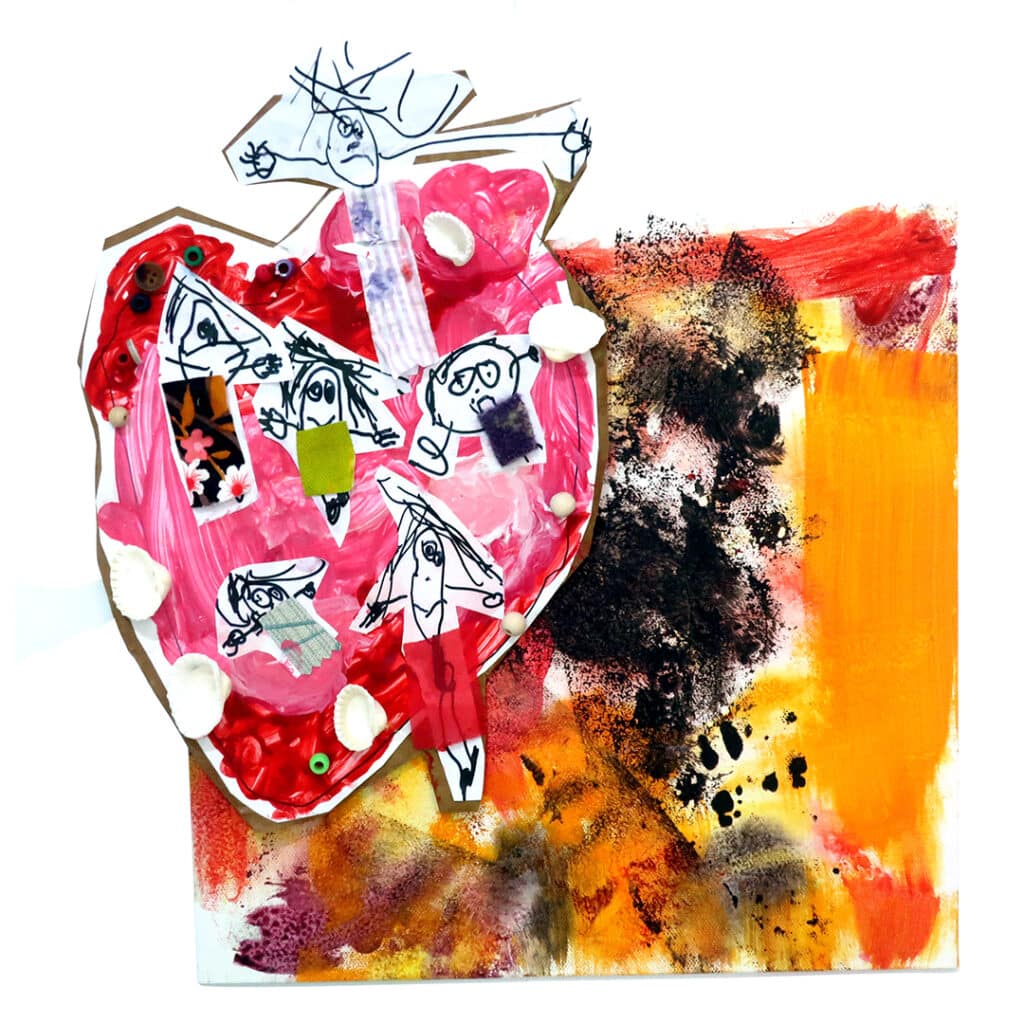

Finding 2
We discovered that the children delight and generously share the knowledge and experiences of their families with others.
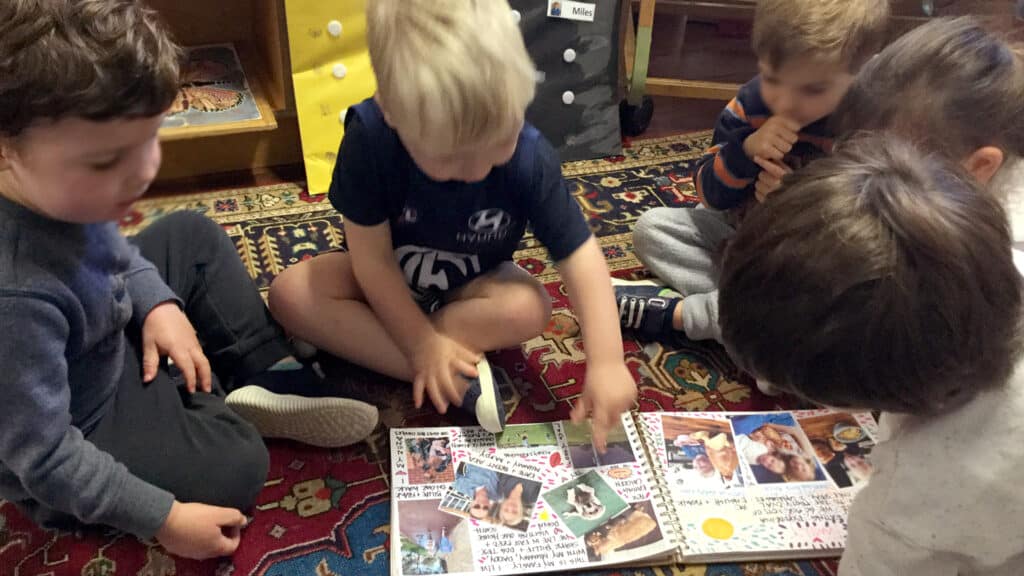

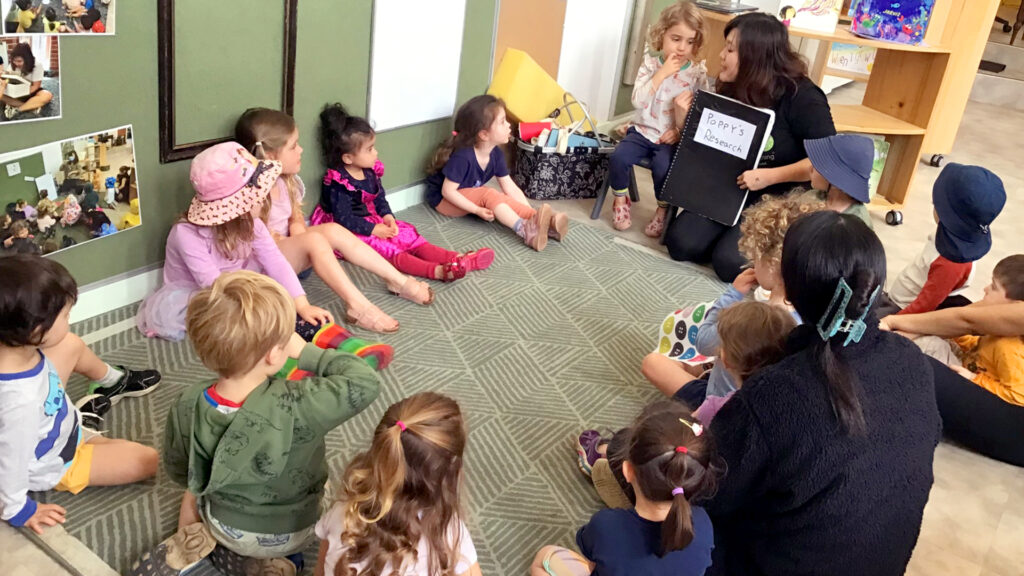

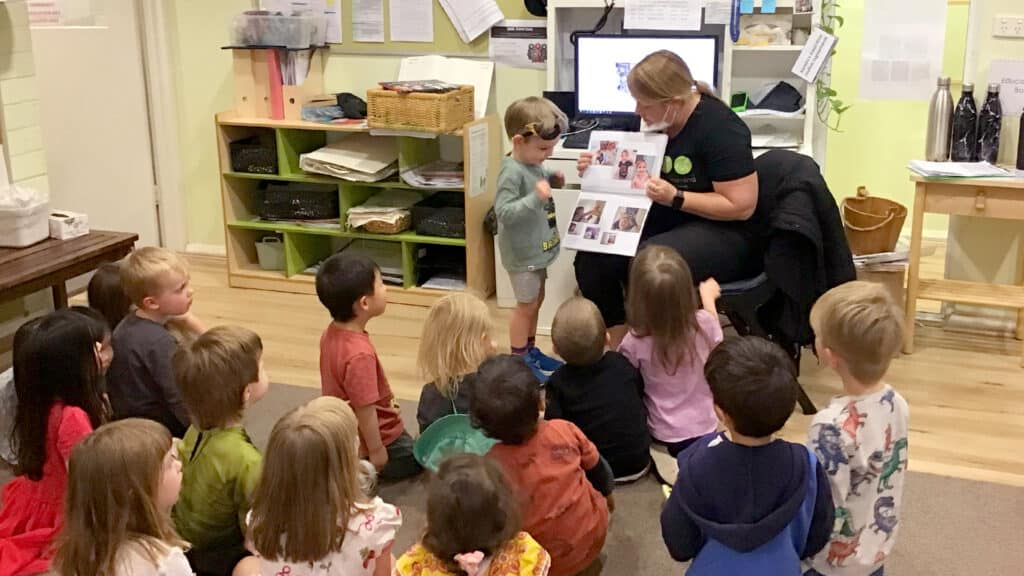

“My Family is my Baby Sister called Tilly. She cries all of the time. I love her. It feels big to be a big sister! My Mum is my Mum, her name is just Mum. I love her so much. Yeah I love Dad, Dad is so tall! Smells like chocolate. He goes to work, my Dad. He sits on the bench. My heart is so full.”
– Charlotte
Finding 3
We identified that children mirror comfort and care through words, tone of voice, and shared ways of being loved by their families.
“Love is being happy. I love Aba’s lipstick and Ima’s hugs. All the children are special about my home, Ima and Aba. Ima smells different just like plain, Aba doesn’t have a smell but we can smell his beard.”
– Shiloh K
Finding 4
We observed children acknowledging and greeting other children’s family members during the comings and goings of the day.
Finding 5
We learned that for children Imagination and reality are one. Children share imaginative family stories to feel close and connected with others.
After further reflection on the findings, the educators are keen to expand the concept of family to include the wider community of their centre and suburb for their 2023 research.
We would like to thank the children, families, and educators in our 3-Year-Old Kindy Programmes – Kardan, Michelangelo, Da Vinci, Karella, Bilbies, Kui, and Poppy – and educators in the Studio at each Centre for your engagement and dedication to researching alongside the children.
